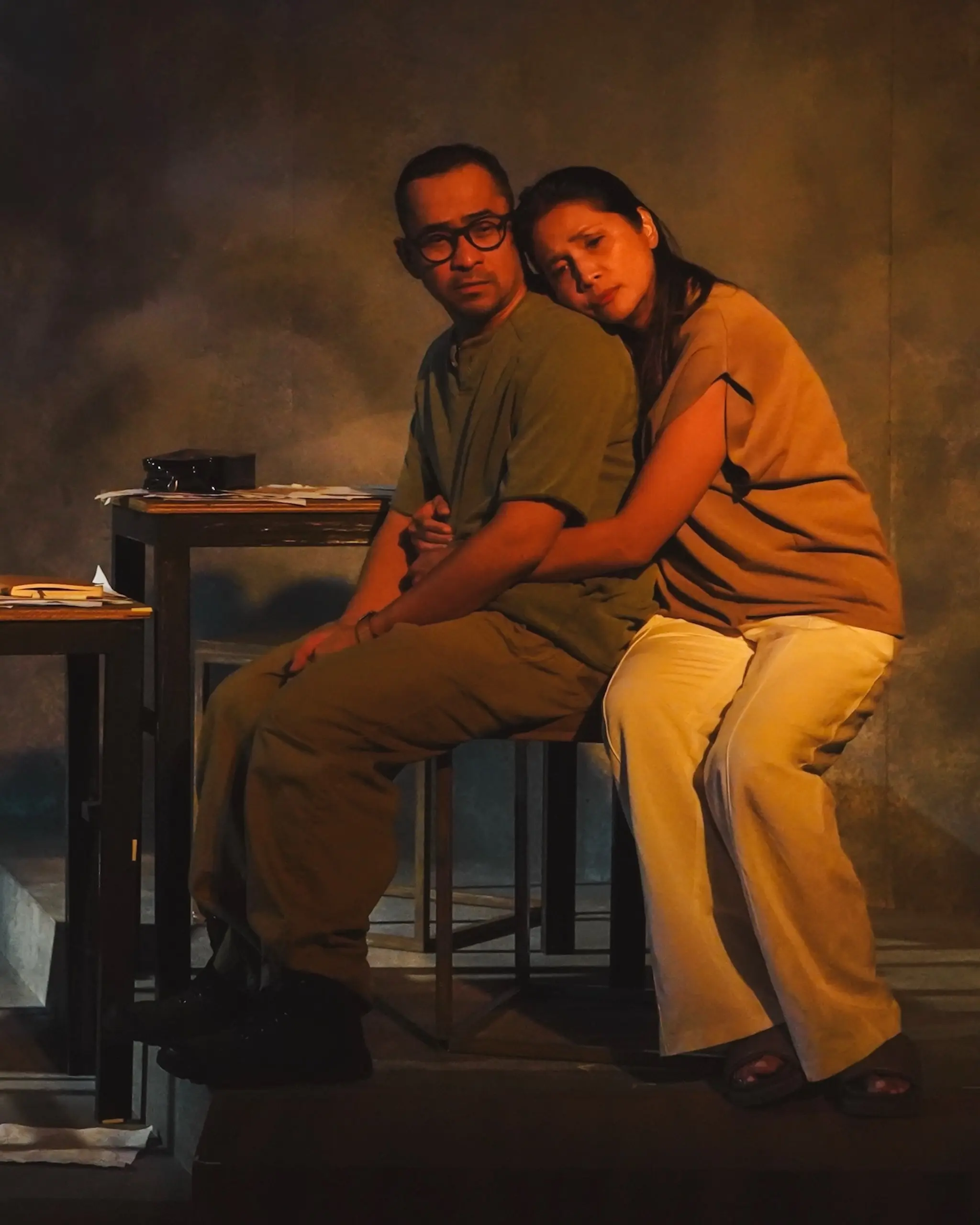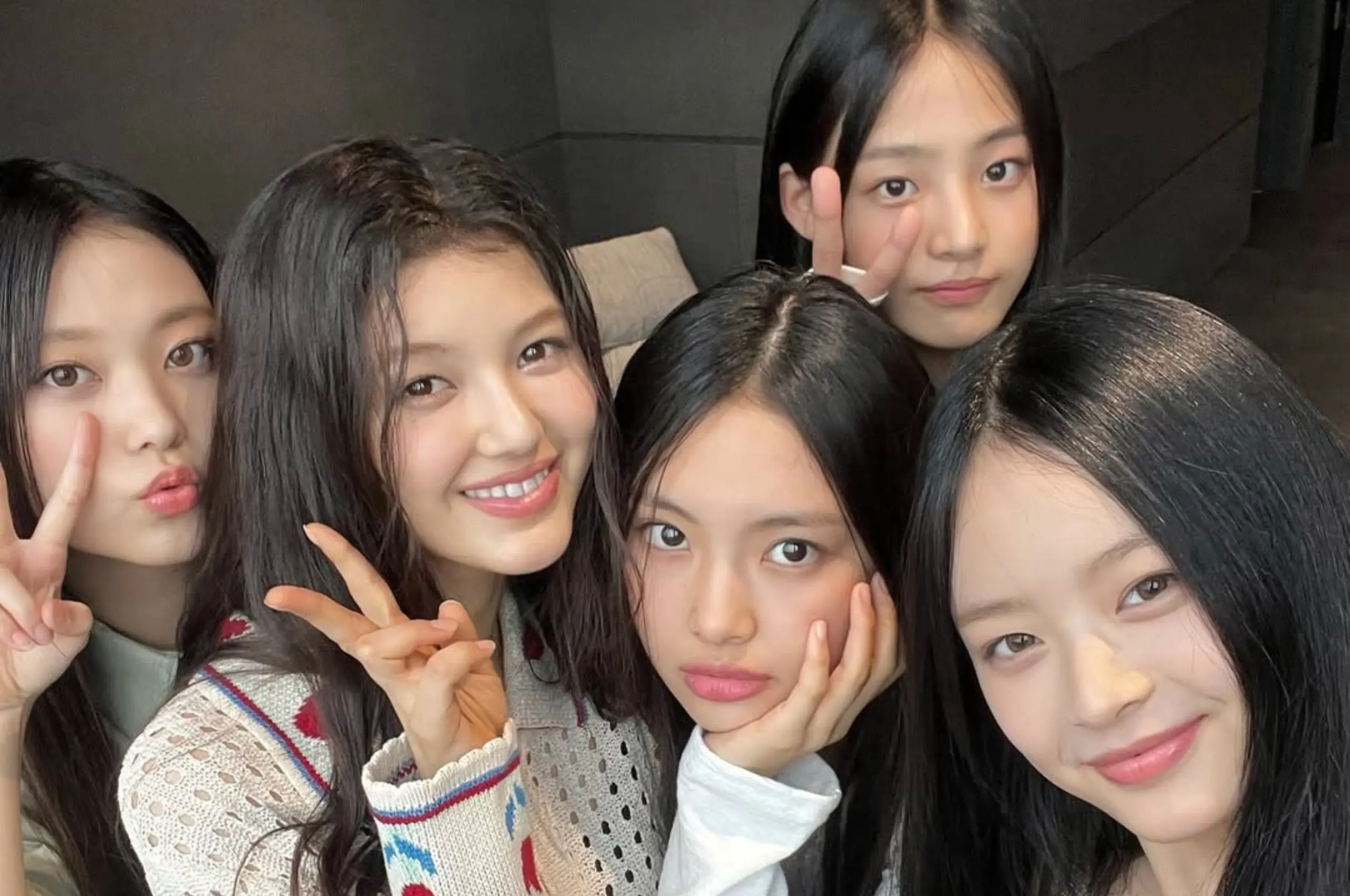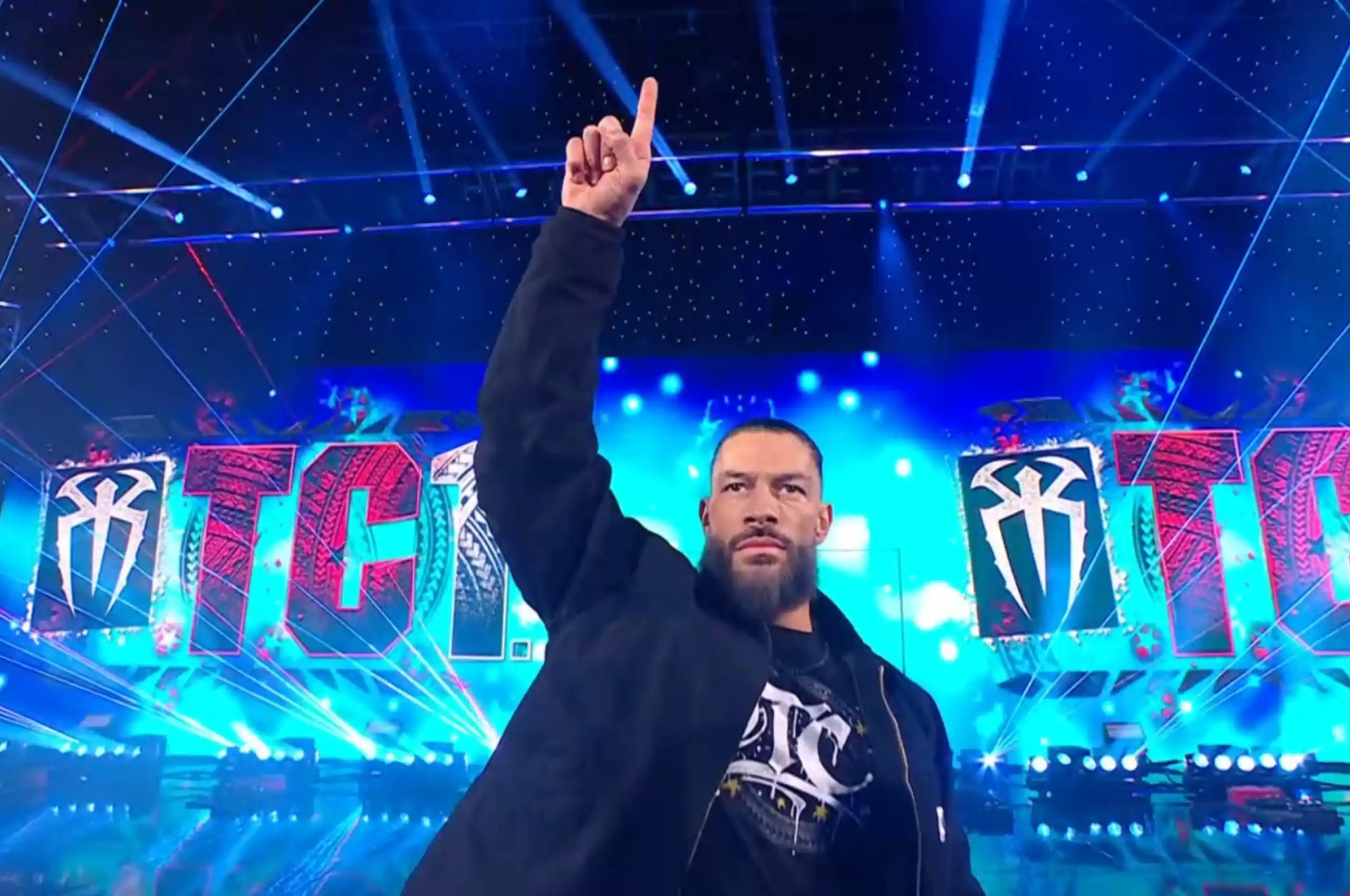There is nothing conventional about the love story of Dagitab.
The 2014 film, directed by Giancarlo Abrahan, follows professors Issey (Eula Valdez) and Nonie (Jimmy Tolentino) as they scramble to hold onto a marriage that is failing. Nonie finds himself becoming increasingly haunted by the ghost of the woman he once loved, and Issey has taken a liking to her young godson.
“The joke of it all was that I wanted to write about a relationship finding its spark towards the end of said relationship,” Abrahan told Rolling Stone Philippines. “Usually, you feel the sparks at the beginning, no? So I was really trying to answer the question, ‘What does it mean to remember and make alive again?’”
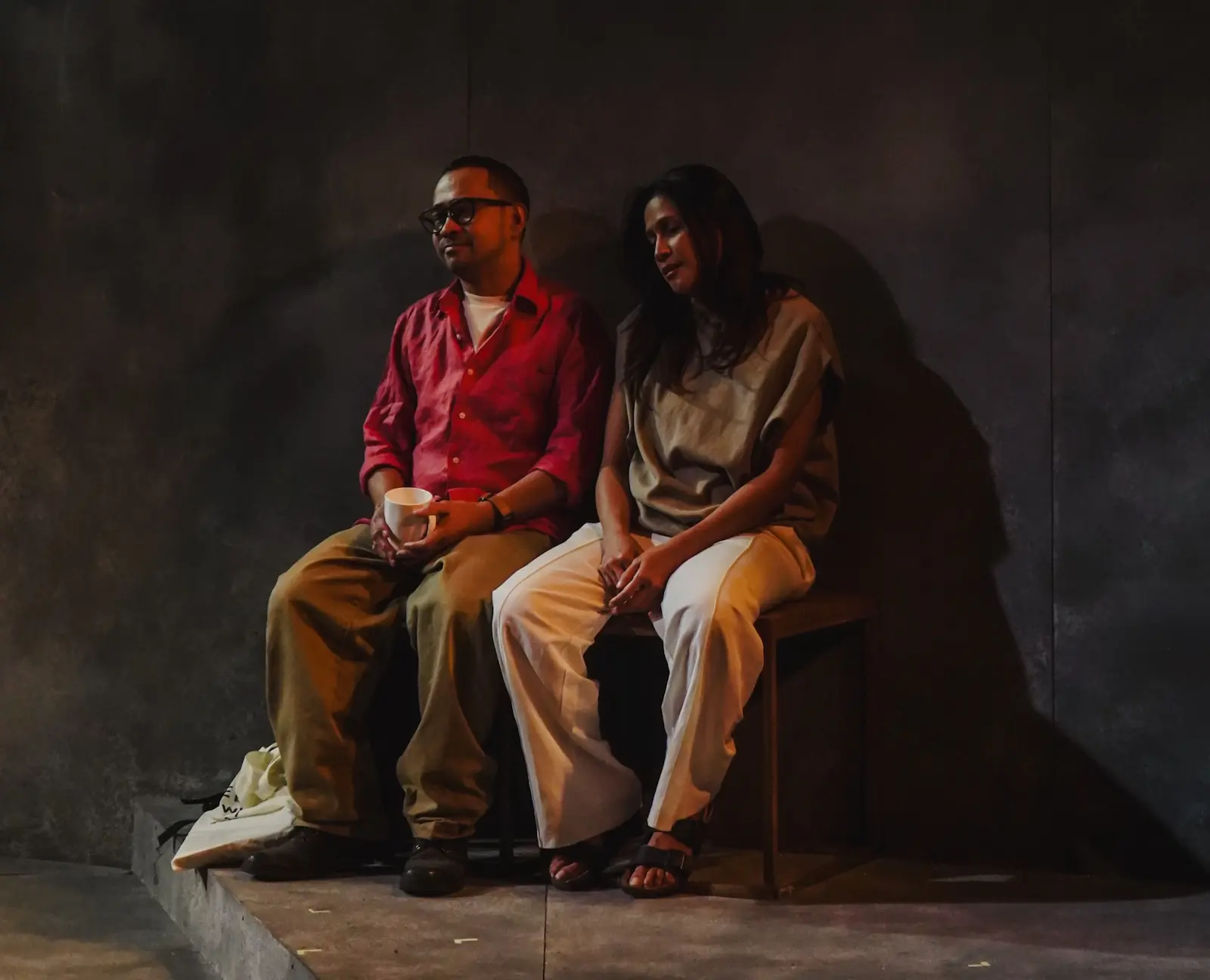
The romance of Dagitab was so striking that it left a lasting impression on Abrahan’s longtime friend, playwright Guelan Varela-Luarca, when he first watched it in 2022. “I was so intrigued by it, and I told Gian this, but we didn’t think much about it until much later,” Luarca told Rolling Stone Philippines. “After we ended up studying in New York, and then ended up coming home to put up our theater company Scene Change, sabi namin, ‘Okay, it’s so obvious. Let’s just merge our powers.’”
Abrahan and Luarca got to work, and their collaboration culminated in the stage adaptation of Dagitab. Featuring a stellar cast — including Agot Isidro, Jojit Lorenzo, Elijah Canlas, Benedix Ramos, and Samantha Samarita — the play opened to sold-out performances earlier this July. Audience members, including National Artist Ricky Lee, Dolly de Leon, and Jasmine Curtis-Smith, have all sung the adaptation’s praises, highlighting how it captures the complexity of love and romance.
“Ang sakit, sakit, sakit ng play,” said de Leon. “Nawasak ako. Reflection talaga siya of how we are sometimes in relationships.” Although the play took a brief hiatus after Isidro collapsed on stage from exhaustion, Dagitab has returned for another limited staging at the Power Mac Center Spotlight in Makati.
Amid the renewed buzz for Dagitab, Abrahan and Luarca sat down with Rolling Stone Philippines to reflect on the adaptation process, their friendship and partnership, and what it means to see a story like Dagitab come to life onstage.
This interview has been edited for brevity and clarity.
What was the inspiration behind adapting Dagitab?
Luarca: Working on Dagitab coincided with this big chapter in my life. I got married just last April, and that’s when I started picking apart the story. The film is about this crumbling marriage and the lives of these two academics as they crumble with it. And they’re also writers, so they felt very familiar to me. I hate to admit it, but I felt like maybe I am them: it’s that life of being academics by day, and artists by night.
One thing I was very clear about with Gian was that I wouldn’t rewatch the film. I only wanted to work on my sense impression of the film, of the memory of it in my head. Even Gian’s screenplay I read only once. I only wanted some base essences to bleed into the play.
But the play is faithful to the spirit of the film. The plot is completely intact. But it’s the storytelling, the form, and the flow of events. And even reality: ‘yong may magic realism dun sa film ni Gian, pero the theater kasi is naturally magical. So in the play, mas pronounced ‘yong abstractions and magic realism, even the breaking of reality where the characters talk straight to the audience.
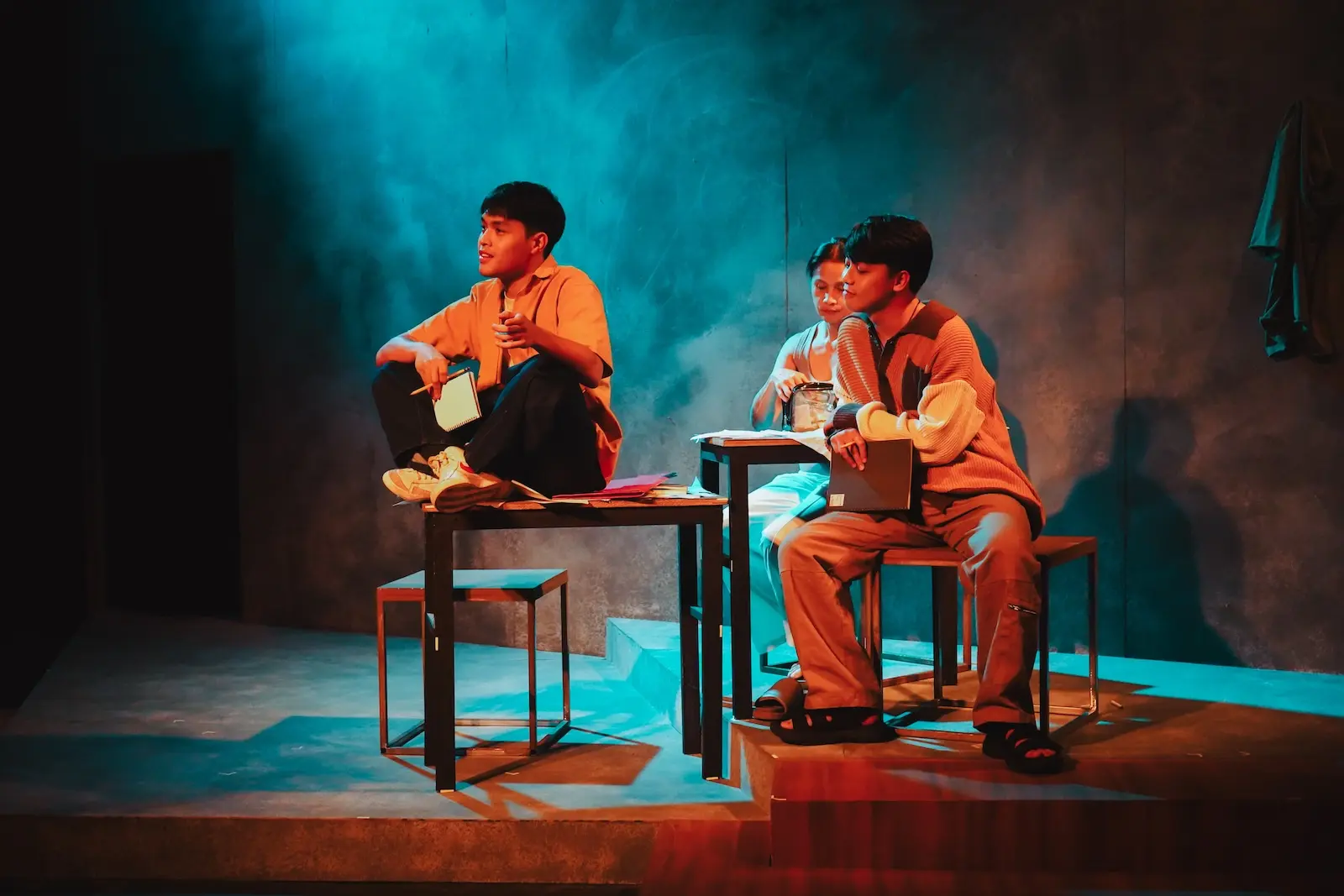
Were there any non-negotiables when it came to what the play should keep from the movie?
Luarca: Parang wala naman kaming hard lines na ganyan ni Gian. Gian served as dramaturge… and by that, I mean he was my therapist. And my advisor. He didn’t meddle in the nitty-gritty of the script writing, but he also gave me advice when I really needed it.
Gian, do you agree that you were Guelan’s therapist?
Abrahan: Ha! Well, I told Guelan that he could change the entirety of Dagitab and just leave all the names intact, and I’d be fine with that. But he really made it his own. He was approaching the story very differently to how I first tackled it 11 or 12 years ago. It was no longer about my relationship with [the University of the Philippines] or my teachers or what I thought relationships were, but it was really more about Guelan confronting his own issues.
I think my job was to understand him. Here he’s written this story based on what I’d written: it’s no longer just something that I thought up.
During its first run, Dagitab performed to sold-out shows. Were you expecting audiences to respond so positively to Dagitab?
Abrahan: So initially, we threw on Dagitab for an audience of 30. And then it got bigger and bigger, becoming audiences of 50 and 60. Now, we’re filling out 200 seats. So it’s exciting and scary, right?
Luarca: I’m not actually sure if it was a unanimous success. I mean, the play is great, but I don’t think it’s an easy watch. It’s not a breeze to sit through Dagitab: it’s very theatrically challenging, because there’s a lot of language and not a lot of action.
Dagitab is a weird creature, and I acknowledge that because it doesn’t behave like a narrative should. Sometimes it behaves like poetry in motion, and sometimes it behaves like abstract. It demands a lot of attention from the audience, and it demands a sharp ear for what the actors are talking about. And it’s two and a half hours! Of people talking about their feelings! It’s not exactly action-packed.
Do you think the ensemble cast had anything to do with Dagitab’s success?
Luarca: Oh, yeah. They saved my ass. There’s hardly any work I have to do because in terms of the actors, I just have to nudge them towards certain directions and they know exactly what to do.
I mean, come on. We have Agot, who is arguably one of the best actresses in Philippine history. I think Ricky Lee said it best when he watched Dagitab and said that Agot becomes everything in this play. She becomes a petulant child, and then a steaming hot woman, and then a sad poet. That versatility comes counterintuitively to Agot’s sense of humility and simplicity. She’s such a sincere and human being.
And then, we have Jojit. I’ve gone on record as saying that Jojit’s one of my favorite actors in theater. And then there’s Elijah and Benedix, brimming with youth and energy. And there’s Sam, who’s this quiet presence onstage — as a first-timer, she is so generous and hardworking. I believe all of them because they have this lust for life.
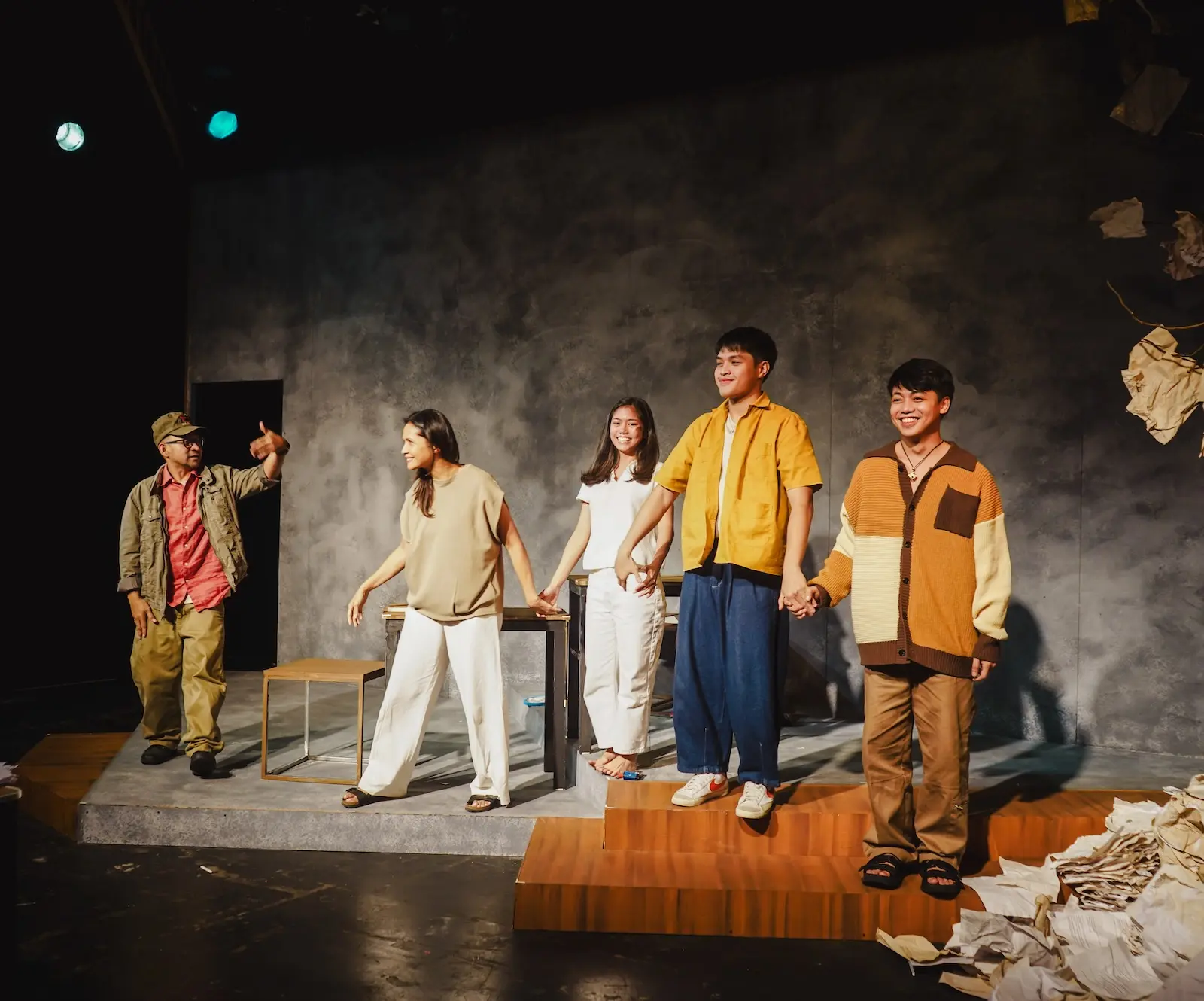
From a production standpoint, what was it like navigating Agot Isidro’s onstage collapse?
Luarca: Oh, she was just really exhausted. I mean, it’s all out in the open, and she posted about it. But there really wasn’t any other story — she was just really exhausted. She was working on a film that was supposed to be over by the time we started on tech, but the film’s production was pushed. We weren’t exactly prepared for it! Usually, there’s an understudy, but we felt that it just wasn’t the right thing to do. We’d rather refund tickets. It was heartbreaking, because it was so much money.
What did you feel when you saw Dagitab come together for the first time?
Luarca: There were moments during rehearsal when I had to put up a confident face in front of the actors, because as a director, you have to lead the team. But deep inside, I was like, “Okay, this is going to be the play that ruins my reputation. Hindi naman end of my career, but you know: it’s gonna suck.”
But there’s hardly anything that runs completely smoothly in the theater. So the first time we watched the whole run from start to finish, I turned to Gian and said, “Okay, we have a show. It’s not perfect, but we have it.”
Abrahan: It was really such a gift. It was like watching the movie and the play happen simultaneously. The most beautiful part of the play for me was the capacity for live theater to sustain language in a way that the film just couldn’t. In the play, actors could speak beautifully, and you could tell that in their language, they were feeling. They were eloquent, precise, and righteous.


